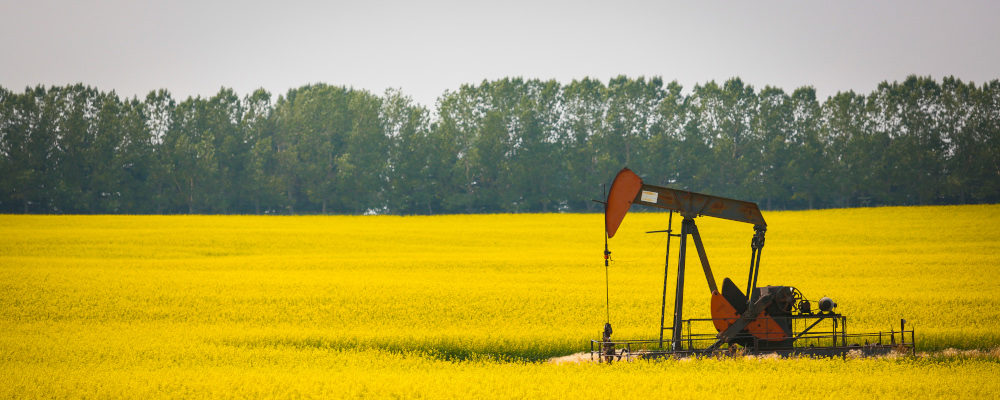We’re watching energy prices skyrocket as Russia invades Ukraine and sanctions are applied on Russian exports.
Downstream, this shows up directly in higher consumer costs at the gas station and in home heating bills. Indirectly, since energy costs are embedded in everything we consume, it manifests as widespread inflation in all the other consumables that we take for granted in modern society. For example, rising natural gas prices lead to shortages in fertilizer which in turn results in reduced crop yields and higher grain prices. Economic security depends on energy security.
Calm societies result from economic security achieved largely through stability in the price and quantity of the necessities of life. History has shown repeatedly how easily rampant inflation can bring down a government when the cost of living exceeds the ability of the citizenry to pay. The Arab Spring erupted in large part due to food price inflation1“However, there was one factor unnoticed that had a global impact but affected the Middle East the most. Food Prices, more specifically the rising price of grain, says Lester Brown, president of the Earth Policy Institute.” https://medium.com/something-about-everything/food-riots-and-the-arab-spring-4886e4c3604#:~:text=Obvious%20reasons%20that%20ignited%20the,last%20and%20least%20authoritarian%20regimes. for example. “Nothing so weakens a government as inflation,” said John Kenneth Galbraith.
Modern politicians understand that periods of high inflation are toxic for political careers. Consequently, we are beginning to see surprising policy reactions to this recent round of energy inflation. California is sending cheques to car owners. Canadian premiers are debating the suspension of provincial gas taxes. Left-leaning politicians in both countries are demanding windfall profit taxes be applied to energy producers to be rebated to consumers.
But hang on a second; many of these same people who are now concerned about energy affordability are the same ones who have been putting up barriers to increasing supply and introducing carbon taxes, the whole point of which is to increase prices, thereby diminishing demand and leading us into a clean energy nirvana. It appears that for all the bloviating about the need for higher prices to curtail demand, there is an underlying concern that when the consumer must open his or her wallet a little wider to pay for something, higher prices might turn out to be a problem.2“The latest Ipsos poll, conducted exclusively for Global News between Sept. 20 and 23, shows Canadians have vastly different views on what should be done to try to mitigate the impacts of climate change, and 46 per cent do not want to spend any additional money in the form of taxes or higher costs of goods.” https://globalnews.ca/news/5948758/canadians-climate-change-ipsos-poll/ That probably explains why the Canadian carbon tax has been promoted as having minimal net cost to the consumer.
The idea that energy security didn’t matter, and we could painlessly transition to renewables, or at least export our carbon footprint to parts of the world that were not pursuing net-zero was a comforting narrative when we thought we had reached the end of history.3“The End of History and the Last Man is a 1992 book of political philosophy by American political scientist Francis Fukuyama which argues that with the ascendancy of Western liberal democracy—which occurred after the Cold War (1945–1991) and the dissolution of the Soviet Union (1991)—humanity has reached ‘not just … the passing of a particular period of post-war history, but the end of history as such: That is, the end-point of mankind’s ideological evolution and the universalization of Western liberal democracy as the final form of human government.'” https://en.wikipedia.org/wiki/The_End_of_History_and_the_Last_Man Now though, the world is quickly waking up from a thirty-year stupor and re-discovering that there are bad actors out there who pose a threat to our way of life. This exposes all the bad decisions we made that increased our dependence on those it turns out we cannot trust. Perhaps it wasn’t such a great idea for Germany to rely exclusively on Russia to provide it with natural gas. Perhaps it wasn’t such a great idea for Canada to rely heavily on China for pharmaceuticals and PPE in the event of a pandemic. Perhaps it wasn’t such a great idea for Joe Biden to cancel the Keystone XL pipeline so that he’d have to go begging dictators in Venezuela, Saudi Arabia, and Iran for supplies after applying sanctions on Russia.
For that matter, perhaps if Canada had built pipelines to tidewater and LNG terminals, we’d be able to help Ukraine in a tangible way, rather than merely “convening” and “rooting for the underdog”.
We are getting a hard lesson in geopolitical reality; the world remains a dangerous place and many people are at risk of starving or freezing due to the reprehensible actions of an autocratic leader. Even a quick resolution to the Ukraine conflict wouldn’t change the fact that the Western world now knows that it cannot be dependent on despots in Moscow, Beijing, or Riyadh for critical inputs that drive modern life. It will take years to build alternative supplies and re-shore supply chains but that will be necessary if we wish to ensure our economic security.
In short, it seems likely that our three-decade experiment with globalization, if not dead, is certainly unwell. If the Russian central bank can be deleted from the world financial system as easily as a Canadian trucker, who could blame any nation that fears running afoul of the United States for adopting alternative forms of financial transacting that don’t require the cooperation of Western governments? We already see this occurring in things like India arranging to purchase Russian oil in rupees, in China’s replacement system for the SWIFT system (CIPS), and in Putin’s demand to be paid for natural gas in roubles. Our adversaries are building alternatives to the Western financial system; where is our alternative to the critical commodities we source from them?
Perhaps currency isn’t really what is being printed in enormous quantities by the Federal Reserve or the Bank of Canada. Perhaps we are discovering that actual currency is oil, natural gas, wheat, uranium, fertilizer, gold, etc.; real assets that we need that cannot be printed or otherwise wished into existence but that are gladly accepted in any country.
To that end, it never made any sense for green politicians and environmentalists to advocate destroying our fossil fuel supply chain without first building its replacement. Energy transitions always take decades. Electricity from renewables can make an important contribution but need to be backed up with natural gas, coal, or nuclear energy. The cost of upgrading the North American electrical grid will run into the trillions. The quantity of minerals required to convert the world’s automobile fleet to EVs away from internal combustion will be enormous and most of the known deposits are controlled by countries we can no longer rely on. Battery technology is nowhere near ready to meet our needs. Bad things happen when reality collides with platitudes.




